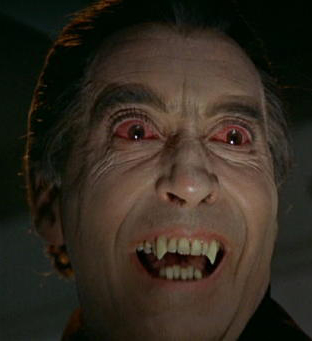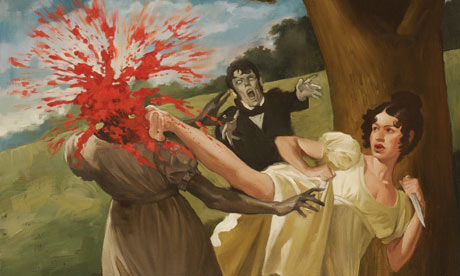If you’re like me, summertime is an excuse to catch up on some much-needed sanity.
There are no papers to write, no required reading for the week, no classes to attend, and the long days are filled with what seems like hours upon hours of free time because even if you have to work a real job, by cutting out the demands of the rest of your life (i.e.: school) at least you have several more hours in the week with which to play. And your brain isn’t chewing on the most recent class discussion or assignment, so you’ve got plenty of free processing space. This can only mean one thing: time for some summer reading.
I recognize that the vast majority of the world isn’t like me. Despite that, there is something wonderfully nostalgic about summer reading. As a culture, we are brought up to associate summertime with semi-assigned reading time that at least gives the illusion of choice. However, once freed from the clutches of primary school, we find ourselves adrift in a sea of choices. Too many, in fact. Do we read what Oprah tells us to, the New York Times tells us to, our friends, the local bookstore, amazon.com?
As a regular person (and not a super geek), often times there are things that we know we should get around to reading but simply have not done so. Classics, conversation pieces, bits of literati that we feel should have a place in our lives but for some reason don’t.
Based upon the precepts that you are a regular person, you like to read, but you don’t like ridiculously thick prose or buzz words the size of my forearm, today I am compiling a list of summer reading for you. Obviously this is biased by my own personal tastes, but I have tried to include as broad a spectrum as possible. The only rule which I strictly adhered to is Novels Only. A novella or two snuck in, but there are no plays or pieces of poetry here. My reasoning is that summer reading should be easy. It shouldn’t take mental exertion to get through (though perhaps it does provide some food for thought). Plays and poetry are different beasts from novels and thereby would require mindsets which definitely deviate from the sentiment of summer reading.
This is in no particular order of importance, though I tried to make it have some sense of progression wherever possible.
Book reports will be expected the second week in September (though I may not get around to grading them until winter break).
Enjoy!
1) Slaughterhouse Five by Kurt Vonnegut; Every. Human. Being. Should. Read. This. Book. Period. It has a broad smattering of topics: World War Two, Vietnam, Time Travel, Aliens, and heart-wrenching statements about humanity. It’s a quick read, an engaging novel, and an interesting story. It’s also one of Vonnegut’s most easy to digest pieces (his writing style can be a bit disorienting at times, but that works for this book). Vonnegut is one of the great novel-writers of the twentieth century and I sincerely believe that reading a piece of his is pivotal to the modern American mind. And there are several quotable catch-phrases from this book that you can whip out to impress your literary friends once you’re through.
2) Pride and Prejudice … with or without zombies by Jane Austen or Seth Grahame-Smith; No, watching the Colin Firth movie does not count (though
could get you bonus points if you read the book first). Come on, you haven’t read this book? You’ve sat through a Julia Roberts movie and you haven’t read this book? Man up and take it like a champ. You may just wind up being entertained. The zombie version is a really cute bit of Austen-mania and totally worth the read once you’ve read the original. Yes, you’ll get the humor if you haven’t read Austen’s version first, but it’ll make you feel morally superior to read them in sequence. Trust me, a sure-fire way to make yourself feel smarter.
3) Anything by Toni Morrison. It may be worth having a look back at my thoughts on this most talented of American writers before you set out on this endeavor. No, her books aren’t pretty. They’re not pleasant. They’re not polite, and they make you feel uncomfortable. But they are literature at its best, folks. Of the published authors alive today, Toni Morrison is (in my opinion) the greatest.
4) Gulliver’s Travels by Jonathon Swift; This is particularly prime summer reading since it is a travelogue of its own sort. Swift’s sense of humor is generally shocking to a modern audience, so be forewarned about the immense amount of fart and poop jokes that you are about to encounter. To me, they’re the highlight of the novel (YES! Eighteenth century fart and poop jokes!). This one also comes with a snob-rating since the story is so frequently re-told in our culture. Wouldn’t you like to know what really happened to poor old Lemuel Gulliver rather than rely upon Jack Black to tell you? If you’re in a Swift mood, you may also want to look up his essay “A Modest Proposal” and give it a whirl. It’s easily one of my favorite short bits of literature…
5) Dracula by Bram Stoker; Since we’re talking Irish authors, let’s give good ol’ Bram a shout-out. Another fantasy-travel-novel, Dracula is perhaps most famous for its portrayal of Christopher Lee… or perhaps the other way

eat your heart out, Robert Pattinson
around. This novel’s epistolary form marks it as a piece of a definite literary movement (epistolary was immensely popular in the eighteenth century, so it marks this piece as having a definite “vintage” feel even for a reader contemporary to its publishing). Best perk to reading this book: it makes you measurably superior to a Twilight fan.
6) Frankenstein by Mary Shelley; While we’re talking about epistolary Gothic novels, let’s throw this one in there. Abandon all thoughts of Boris Karloff (and even Kenneth Branagh). Film adaptations of this cultural phenomenon hit NOWHERE NEAR the actual thing. Consider them utterly unimaginative bits of fanfic. You don’t know Frankenstein until you’ve Shelley’s novel. Extra literary factoid: there are two editions of this text which vary enough that literati have constant debates about them. The 1818 edition (near and dear to my heart) is an edition which some say was heavily edited by Mary’s husband Percy Shelley. Its introduction is written by him pretending to be her. We do know that he looked over the manuscript, but the exact degree of his red-penning is difficult to determine. The 1831 edition was published after Percy’s death and includes a preface from Mary herself (available at the back of most critical texts). Mary claims that this edition is closer to what she first meant to write, but since the 1818 text received so much criticism when it was released it is hard to say whether Mary was simply bowing to that criticism or genuine in her sentiments. Either way, do get your hands on a copy and read it!
7) The Alchemist by Paulo Coelho; This is an especially good book to read if you are in a time of transition. It’s a novel-length allegory and is full of beautiful, inspiring thoughts. Personally, I was resistant at first to a novel which (as I perceived it) tried to preach to me about what I should and should not do, but boy was I missing out on some lovely and wonderful new ways to perceive things. It’s not a how-to guide, it’s a road map. Think of it that way and it’ll make the entire experience more enjoyable.
8) A Study in Scarlet by Sir Arthur Conan Doyle; The first Sherlock Holmes novel both sequentially in the timeline, and that Conan Doyle wrote. If you never read another of the stories (and I highly recommend that you do), you must at least read this one. Otherwise, you are banned from ever saying “elementary!”, smoking a pipe, or even thinking about deer-stalker caps (which incidentally appeared nowhere in any of the books but rather were introduced to the Holmes mythos by artist Sidney Page in his illustration which accompanied “The Boscombe Valley Mystery” in 1891, a good four years after Holmes’ introduction as a literary character).

Page's sketch of Holmes and Watson
9) The Hitchhiker’s Guide to the Galaxy by Douglas Adams; If you like quirky British humor (and really, who doesn’t?), MUST MUST MUST read this! I will forgive you if you don’t get through the entire series (I’ll admit that I have not), but at least give this first one a good read. It’s funny, it’s engaging, and it’s a classic! Okay, maybe you’ll never discuss it in an English lit class, but you’ll definitely be discussing it with your nerd friends. ALL THE TIME.
10) On the Road by Jack Kerouac; Yet another travel narrative, but this time American and beatified! Kerouac is perhaps the most poetic novelist I’ve ever read (and that I can stomach to read… I’m not a huge fan of poetic novelists). It’s a slim book, but I wouldn’t call it a quick read simply because his style demands a bit more attention than your average bear. Still, well worth the extra effort.
Now find yourself a sunbeam, pour some lemonade, and get busy! If you finish all these before the summer is out, I’ll be more than happy to provide more suggestions!




